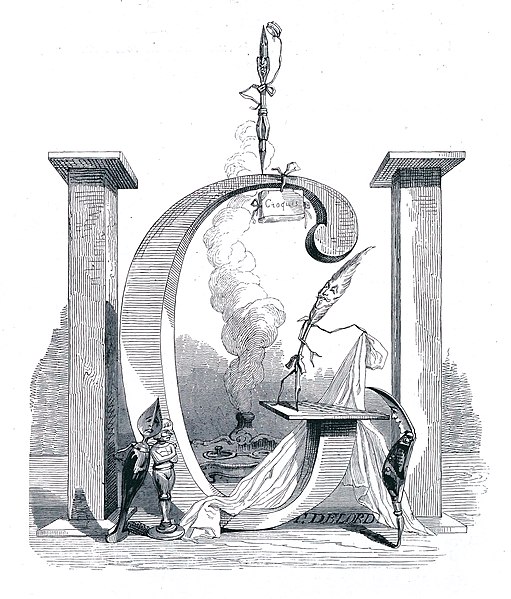An epilogue or epilog is a piece of writing at the end of a work of literature, usually used to bring closure to the work. It is presented from the perspective of within the story. When the author steps in and speaks directly to the reader, that is more properly considered an afterword. The opposite is a prologue—a piece of writing at the beginning of a work of literature or drama, usually used to open the story and capture interest. Some genres, for example television programs and video games, call the epilogue an "outro" patterned on the use of "intro" for "introduction".
Photo of Epilogue from Moby Dick or, The Whale, by Herman Melville
Illustration from Un Autre Monde epilogue, by Grandville.
A prologue or prolog is an opening to a story that establishes the context and gives background details, often some earlier story that ties into the main one, and other miscellaneous information. The Ancient Greek word πρόλογος includes the modern meaning of prologue, but was of wider significance, more like the meaning of preface. The importance, therefore, of the prologue in Greek drama was very great; it sometimes almost took the place of a romance, to which, or to an episode in which, the play itself succeeded.
Artwork by Gustave Doré.
Title page of 1616 printing of Every Man in His Humour, a 1598 play by the English playwright Ben Jonson. The play belongs to the subgenre of the "humours comedy"




